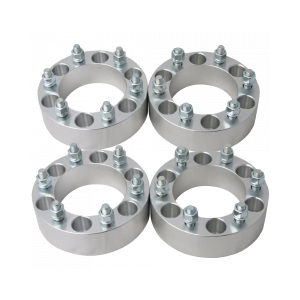Choosing the Right Washer for Your Drain Bolt Installation Needs
Understanding Drain Bolt Washers Importance, Types, and Maintenance
In the realm of automotive and mechanical engineering, small components often play crucial roles in the overall functionality and performance of a system. Among these components, the drain bolt washer stands out as an essential element for ensuring a leak-proof seal in various applications, from vehicles to machinery. This article delves into the significance of drain bolt washers, explores the different types available, and discusses best practices for maintenance and replacement.
What is a Drain Bolt Washer?
A drain bolt washer is a gasket or seal used alongside a drain bolt to prevent leaks at fluid junctions, particularly in oil sumps, transmission cases, and other fluid reservoirs. When a drain bolt is tightened, the washer compresses to create a tight seal, which keeps fluids contained and prevents any unwanted leakage. This seemingly simple component is critical in maintaining the integrity of a system and ensuring its optimal performance.
Importance of Drain Bolt Washers
1. Leak Prevention The primary function of drain bolt washers is to prevent leaks. In automotive applications, for example, an oil leak can lead to low oil levels, resulting in insufficient lubrication for engine components. This can cause overheating and severe engine damage. A reliable washer ensures that the oil or coolant stays contained.
2. Safety Fluid leaks can pose safety hazards, especially in industrial settings. Hydraulic fluid leaks, for instance, can lead to slippery surfaces and potential accidents. A functioning drain bolt washer minimizes these risks by containing essential fluids.
3. Environmental Protection Leaking fluids can harm the environment. Using drain bolt washers effectively mitigates this risk by ensuring that hazardous substances, like oils and coolants, do not escape into the ground or waterways.
4. Cost Efficiency Regularly replacing worn or damaged washers can save significant costs associated with fluid loss, engine repairs, and environmental cleanup. Preventative maintenance of drain bolt washers is a small investment that leads to long-term savings.
Types of Drain Bolt Washers
Drain bolt washers come in various materials and designs to suit different applications
1. Copper Washers Copper washers are popular in automotive applications due to their malleability and ability to form a tight seal. However, they are prone to fatigue over time, requiring regular inspection and replacement.
drain bolt washer

2. Rubber Washers Rubber washers are good for applications with moderate pressure and temperature. They provide excellent sealing capabilities but may degrade over time due to exposure to oils and heat.
3. Aluminum Washers Lightweight and corrosion-resistant, aluminum washers are commonly used in high-performance vehicles. They can withstand higher temperatures and pressures compared to rubber and are often used in racing applications.
4. PTFE Washers Polytetrafluoroethylene (PTFE) washers are highly resistant to chemicals and can operate at a wide range of temperatures. They are ideal for applications involving aggressive fluids.
Maintenance and Replacement
To ensure the longevity and effectiveness of drain bolt washers, regular maintenance and timely replacement are essential
- Inspection Periodically check the condition of drain bolt washers during routine maintenance. Look for signs of wear, cracks, or deformation that could compromise their sealing abilities.
- Replacement Always replace washers when changing oils or fluids. Even if a washer appears intact, it is good practice to replace it to ensure a secure seal.
- Tightening Torque Follow the manufacturer's specifications for tightening the drain bolt. Over-tightening can damage the washer, while under-tightening can lead to leaks.
- Use Quality Parts Investing in high-quality washers from reputable suppliers can enhance the reliability of your system. Low-cost alternatives may save money initially but can lead to costly leaks and repairs.
Conclusion
In summary, drain bolt washers, though small and often overlooked, are vital components in various mechanical systems. Their role in preventing leaks, ensuring safety, and protecting the environment cannot be overstated. By understanding the types of washers available and practicing proper maintenance techniques, individuals and businesses can enhance the performance and longevity of their vehicles and machinery. Remember, a small component can make a significant difference in the system's overall integrity.
-
The Ultimate Guide to Boat Propeller Bearings and Trailer Wheel Bearings
News Jul.31,2025
-
The Essential Guide to Marine Bearings and Boat Trailer Wheel Bearings
News Jul.31,2025
-
The Complete Guide to Heavy Duty Seals: Protecting Doors and Spaces Efficiently
News Jul.31,2025
-
Essential Guide to Marine Shaft Bearings and Boat Trailer Axle Bearings
News Jul.31,2025
-
Comprehensive Guide to Marine and Trailer Bearings for Safe Boating and Transport
News Jul.31,2025
-
Comprehensive Guide to Automotive Oil Seals: Protecting Your Engine and Shafts
News Jul.31,2025
-
Understanding Automotive Oil Seals: Essential Components for Engine and Shaft Protection
News Jul.30,2025
Products categories















